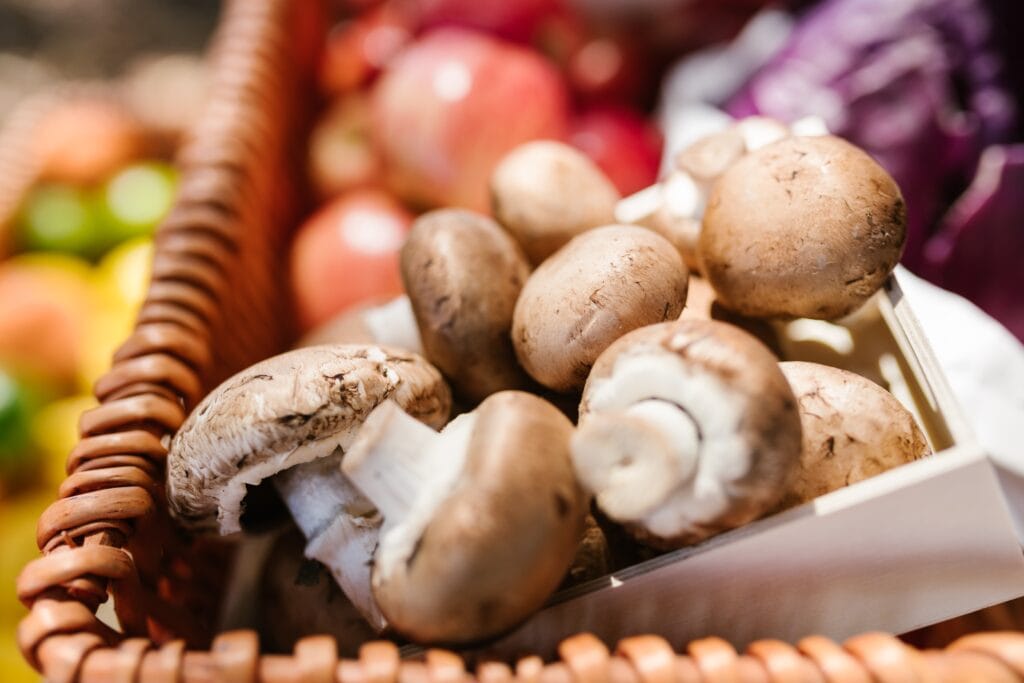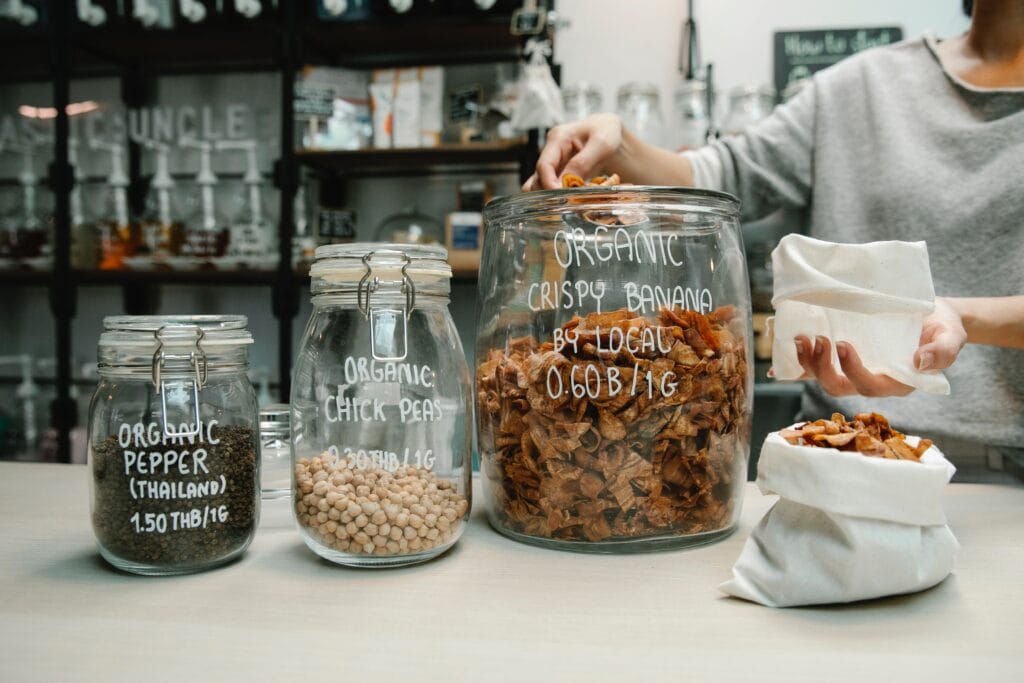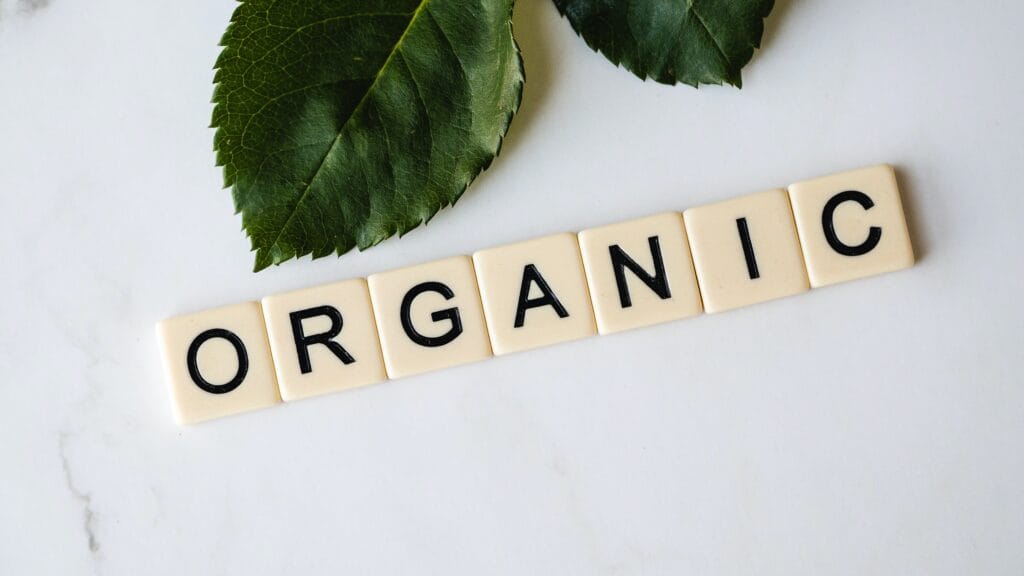There are many reasons to eat organic food, whether it is to contribute to the protection of the environment, to change our relationship to food or to anchor ourselves in our territory.
Definition : what is organic food ?

The term “organic” refers to a product or foodstuff produced by organic farming.
The method of agricultural production is natural and does not use any synthetic chemical product, such as pesticides, chemical herbicides, artificial fertilizers or growth hormones, nor GMO.
It is part of a global vision of sustainable development in respect of the environment, biodiversity and animal welfare.
Organic farming uses natural recycled organic matter and the principle of crop rotation. Organic agriculture was born in the 1920s, when agronomists, farmers, consumers and doctors began to work for an alternative mode of agricultural production.

Organic Food : The benefits of organic cooking
You hear everywhere that “cooking organically is good” but do you really know all the benefits of this true way of life for you and for the environment?
The best reason to cook organically is the taste of organically grown produce. Organic vegetables and fruits grow without pesticides or chemical fertilizers, at their own speed, respecting the seasonality.
Result: they are much tastier! Richer in vitamins, minerals and trace elements, they are better for your health.
Organic meals also mean more varied meals. Organic farming puts back on the shelves, old forgotten vegetables like parsnips, pâtisons, rutabaga, butternut.
So many opportunities to draw from easy organic recipes to prepare them and vary your menus.Organic agriculture also respects animal welfare.
No battery farms or concrete floors, the animals have access to the outdoors. They are fed with organic food and do not take growth hormones.
Finally, organic agriculture, by using organic fertilizers instead of synthetic chemical fertilizers, preserves the soil and the species that live there. It avoids the contamination of water tables and rivers and thus respects biodiversity. Cooking organically is good for the planet!
How do you get started with Organic Food ?
You are convinced but you have never cooked organic. Here is how to start and cook organic without any headache.
The essential ingredients to compose an organic dish?
To start preparing organic meals, make sure you have a number of essentials in your cupboards:
-Whole or semi-complete pasta, which is more filling than white pasta
-Whole grains for a change from rice
-Legumes rich in vegetable proteins
-Basic powdered spices
-Liquid vegetable cream
-Light cane sugar instead of refined white sugar
-Dried fruits and small seeds
This list is of course not exhaustive. It will be completed as you experiment with cooking. If you are starting out in organic cooking, make your life easier by choosing easy organic cooking. Choose quick organic recipes like vegetable omelets, soups, pasta dishes or vegetable gratins.
Some examples of practical organic meals to take to work
For lunch at work, you can opt for easy take-out meals like
- a sweet potato, pea, spinach and walnut quiche
- cauliflower sushi
- Avocado and chicken croque monsieur
- Mediterranean bread bagnat
- Italian salad
- a beet, feta, chives and walnut salad
- Fruit Crisp Smoothie
To protect the environment
By consuming organically grown food products, you contribute to the protection of the environment, because these products are produced according to practices that respect natural resources and heritage:
The earth
Maintenance of the fertility and structure of the soil through adapted practices: rotation, green manures, natural amendments…
Preservation of the life in the soil: no use of chemicals.
The water
Limitation of runoff: improvement of soil structure, establishment of hedges
Preservation of quality: it means no use of chemicals.
Biodiversity
Conservation of the genetic biodiversity of cultivated plants
Preservation of wild flora and fauna to create natural balances between auxiliaries and pests.
The energy
Less indirect energy consumption: prohibition of expensive fossil fuel chemicals.
Local marketing favored: reduction of storage and transport costs.
The landscape
Diversity of crops,
Creation and maintenance of hedges, meadows, natural waterways
The organic labels
There are different organic labels. In France, the AB and Bio Europe logos (these white stars on a green background forming a leaf) are the most widespread.
There are also Demeter and Bio Cohérence. The first one follows the rules of biodynamic agriculture which adapts its production to the lunar and planetary cycles, and the second one was created after 2010 when the rules of the French bio have been lightened a bit.
The Bio Cohérence label has in its specifications more stringent conditions requiring that organic products are grown, produced and processed on French soil.
Raphaël Gruman reminds us that “French organic is very regulated. It is stricter than European organic and even stricter than some foreign organic.
It is therefore better to choose a French organic product” while specifying that it is better to have food produced locally in a reasoned manner than organic food from the other side of the world, with different organic criteria and a greater carbon impact due to transportation.

Organic product, how to know it ?
For a product to be organic, it must have the acronym AB (for Agriculture Biologique) or the mention Agriculture Biologique or Produit issu de l’agriculture biologique.
Organic does not necessarily mean healthy
But be careful, organic does not necessarily mean healthy. A packet of cookies, even if they are organic, will still be full of sugar: “Marketing sometimes plays the card of ‘organic is good’, but this is not necessarily true. Eating only organic processed foods is not healthy.” Organic or conventional, it is important to always have the reflex to refer to the list of ingredients and their origin.
Organic food is better for children and pregnant women
Raphaël Gruman draws our attention to one point: “The doses of pesticides authorized in food are calculated for an adult. And these rates compared to the weight of a fetus, a baby or a child become extremely important. That’s why I strongly advise that organic food be preferred for pregnant women and children.”





